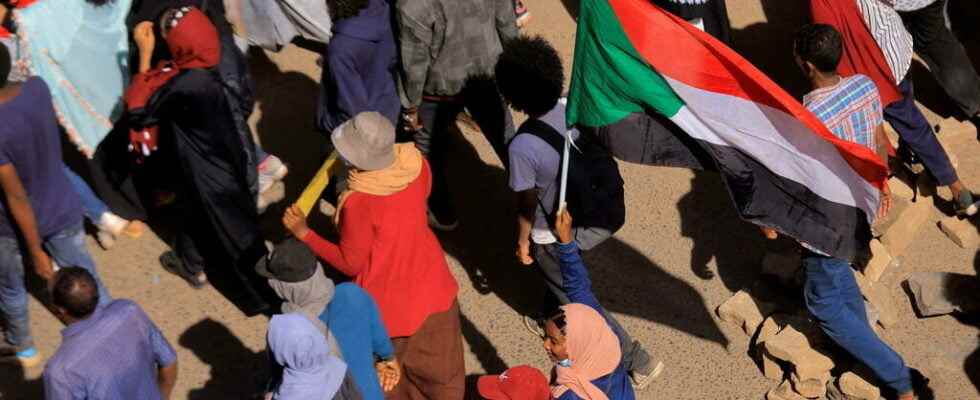In Sudan, thousands of demonstrators once again took to the streets this Sunday in Khartoum and several other cities to protest against the military coup of October 25 and a week after the resignation of civilian Prime Minister Abdallah Hamdok. One person was killed.
Despite the fierce repression of demonstrations carried out for two and a half months by the police, the mobilization does not seem to weaken. The Sudanese once again descended en masse this Sunday, January 9 to oppose military power.
In Khartoum, protesters marched towards the presidential palace before security forces attempted to disperse them with tear gas, which they also did in Bahri, on the northern outskirts of the capital. Rallies were also reported in Ondourman and Wad Madani, south of Khartoum. Doctors in white coats joined the processions to denounce the operations carried out by the security forces against hospitals during previous demonstrations.
These gatherings have so far been severely repressed. At least 60 people have been killed and hundreds injured since the October 25 coup, say doctors linked to the protest movement. This Sunday, the repression made a new victim according to these doctors.
UN attempts arbitration
In this context, the UN wants to attempt mediation in Sudan. The Minuats, its mission there, wants to organize talks to try to resolve the political crisis. This was announced by its boss, Volker Perthes, on Saturday. He must address the press on Monday, January 10 to specify the details, reports our correspondent in Kenya, Albane Thirouard.
A UN mediation had already made it possible to put Prime Minister Abdallah Hamdok back in power in November. Since his resignation on January 2, the military have been the only ones in charge.
” End the violence and start a constructive process Towards democracy, that is the objective of this mediation. The method is intended to be inclusive. All stakeholders are invited to the discussions: soldiers, political parties, armed groups, but also representatives of civil society, women’s groups and resistance committees. Their participation is crucial for the success of the talks.
But the process already appears to be in jeopardy. The Sudanese Professionals Association, one of the spearheads of the protest movement against the coup, has already firmly rejected the initiative. For them, no negotiation is possible as long as the putschist military council is in place.
The Forces for Freedom and Change, another pillar of the revolt, explained that they had not received any details from the UN. And wait to be ” officially informed To study the initiative and announce their position.
The UN approach has in any case been applauded by the international community. Several countries, including the United States, called on Sudanese political actors to seize this opportunity to restore the country’s transition to democracy.
